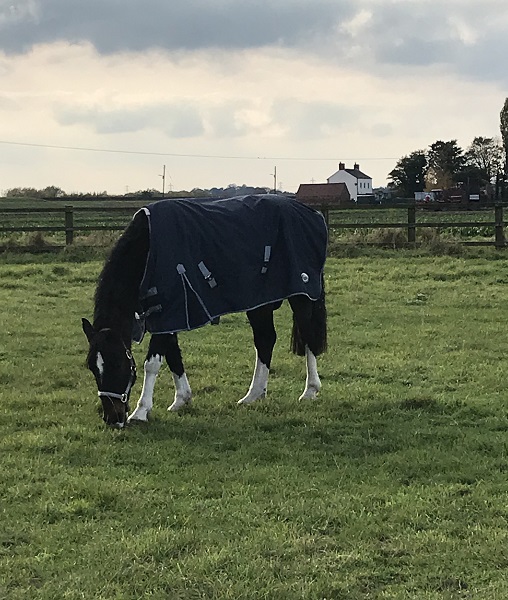Posted: 26th November 2019 | Back to news feed
Stabled or living out during winter is a continuous issue that divides opinion but what is best for your horses’ digestive health?
First and foremost, it is important to recognise that not all horses are the same and what is right for one is not always right for another.
Management is also a major factor for many horse owners who don’t have enough acreage to allow their horse the luxury of 24-hour turnout during winter, and with the flooding caused by the heavy rainfall experienced at the start of autumn, sometimes stabling is the only option. Practical restrictions, such as work, personal life and available facilities all contribute to the management of the horse over winter. In some cases, that management is dictated by others for many reasons.
The number one priority regardless of whether your horse lives in or out is to ensure they are getting enough fibre to keep their digestive system working efficiently, with access to ad lib forage being the ideal solution.

Grazing is obviously the most natural situation but most owners don’t have an abundance of grass at this time of year so additional forage in the form of hay or haylage must be provided in the field. If this is not an option because your yard doesn’t allow it then being stabled may well be better than being out.
Living in doesn’t necessarily lead to poorer digestive health – it really depends on the access to forage and the ability to trickle feed. If, in some cases, living in means restricted forage and increased (sometimes excess) hard feed in fewer meals then without a doubt turn out would be better.
If, however, living in still means they get ad lib forage and can trickle feed with any hard feed being offered in small amounts across a greater number of meals then digestive health per se should be just as good as being turned out.
For exercise and weight management obviously turnout is much better. In the wild horses would put on weight during the summer months and then lose this over winter. However, this natural form of weight management is something that has been lost in the management of many domestic horses. Over-rugging, excess feed and protected from the elements can have a significant metabolic impact, as well as an indirect effect on the digestive health of the horse.
Stress is another factor that can compromise the health of the digestive system and limited access to turnout during winter can be a significant cause for some horses during winter.
Whether your horse lives in or out good digestive health very much depends on the ability to ensure sufficient fibre intake to minimise gut disturbances.
When making the decision about what is best for your horse, it is not just ensuring the health of the digestive system that determines if they should live in or out. There are other contributing factors to making the decision that a horse should live out 24/7, such as respiratory disease and mobility issues.
The Lifeforce Range of all-natural, daily digestive aid supplements from Alltech is designed to benefit horses of every stage of life, from breeding stock to pleasure and performance animals.
For further information please visit www.lifeforcehorse.co.uk or telephone 01780 764512.
The Equestrian Index newsfeed is compiled from articles submitted by advertising members and expresses the opinions of those members. Watsons Directories Ltd shall not be held liable for any inaccuracies or mis-statements therein.
